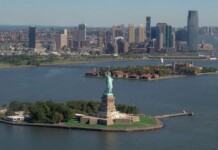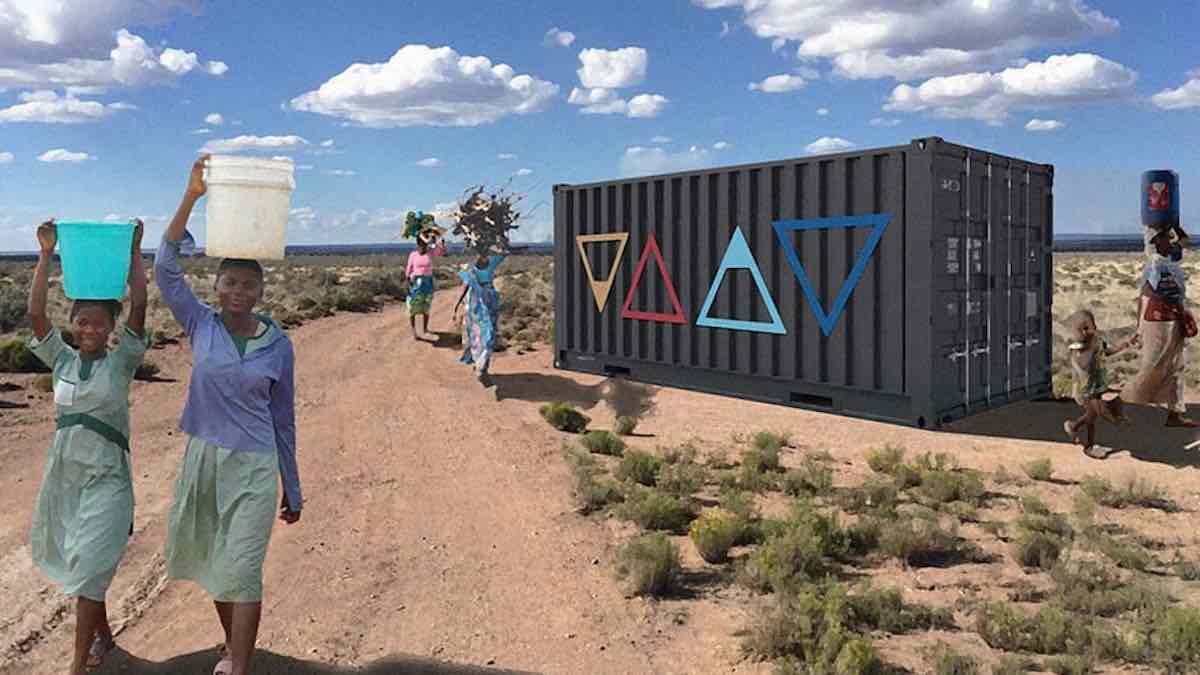An ingenious piece of technology has just won a top prize for its ability to provide clean drinking water to millions of people around the world simply by mimicking the way clouds are formed.
The device, which was developed by the Skysource/Skywater Alliance, looks like an ordinary shipping container – but inside of the box, a power system sucks in warm air so that it can mingle with the cold air inside, causing condensation to form. The resulting water droplets are then collected into a water tank that can be dispensed through a tap.
In order to generate the amount of electricity necessary for the system, the technology can be powered by biomass, such as twigs, branches, or dead trees.
This has two benefits – firstly, it helps to clear away and dispose of natural debris which could fuel dangerous wildfires. Secondly, using biomass for fuel creates a nutritious kind of charcoal byproduct called “biochar”. When mixed with soil, it nourishes crops and plants while simultaneously trapping carbon in the ground, rather than allowing it to escape the trees during wildfires, making the entire system a carbon-negative device.
RELATED: 11-Year-Old Becomes ‘America’s Top Young Scientist’ for Her Sensor Detecting Lead in Water
Since some disaster-stricken areas may not have access to biomass, the Skywater device can also be adapted to solar power and wind energy power systems as well.
Skywater was awarded the Water Abundance XPrize, a competition that was first launched at a United Nations conference in 2016 as a means of spurring engineers to harness technology that could provide clean drinking water to millions of people.
The prize had three requirements: any technology entered into the competition had to run on 100% clean energy; it had to extract at least 2,000 liters of water from the atmosphere every day; and that water had to cost less than 2 cents per liter.
LOOK: Depressed by Cable News Playing in Public Everywhere, He Designed Glasses That Black Out Screens
“We do a lot of first principles thinking at XPrize when we start designing these challenges,” XPrize’s chief officer Zenia Tata told Fast Company about their decision to use the water in the atmosphere as their key source for inexpensive drinking water.
“At any given time, [the atmosphere] holds 12 quadrillion gallons–the number 12 with 19 zeros after it – a very, very, big number,” she added. So instead of depending on expensive desalination techniques or costly air-to-water technologies that already exist, the XPrize organizers asked engineers to develop the cheapest method of using the water in the atmosphere to generate enough freshwater for the household needs of all 7 billion people in the world.
Skywater was awarded the $1.75 million prize for their biomass-powered freshwater system. The organization will reportedly be using the prize money to manufacture and distribute the water systems to water-scarce regions of the world in partnership with international relief efforts.
(WATCH the explanation video below) – Photo by Skysource/Skywater Alliance
Precipitating Change from Matt Eppedio on Vimeo.
Pass On The Positive News To Your Friends On Social Media





















So innovative!
This is awesome! So incredible they can have clean water! Great invention.